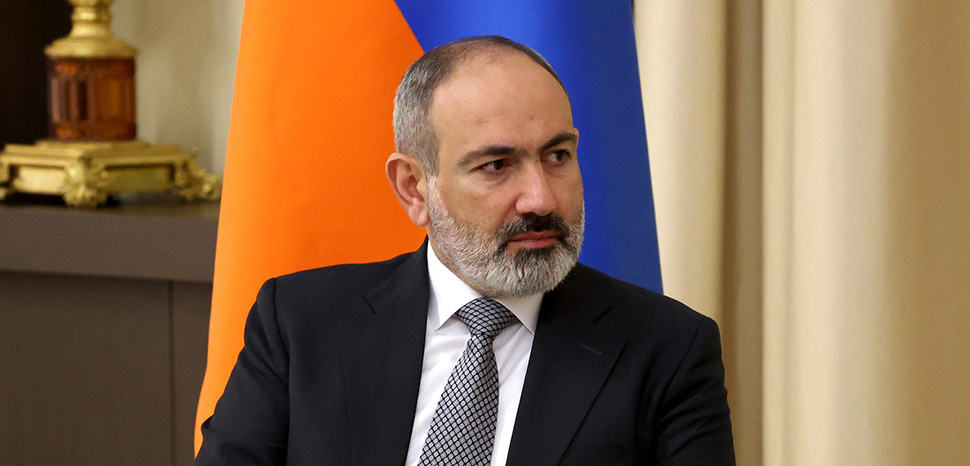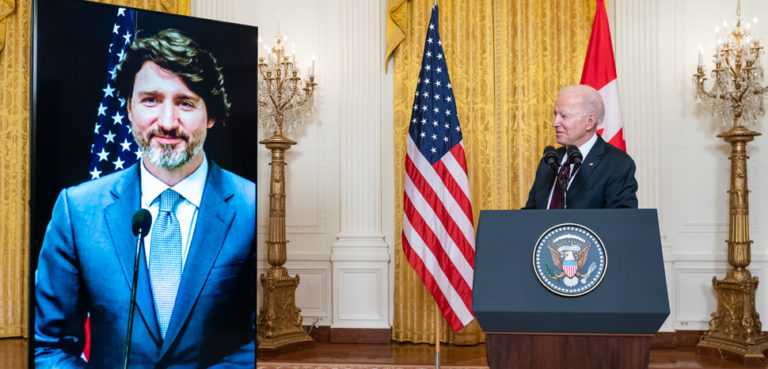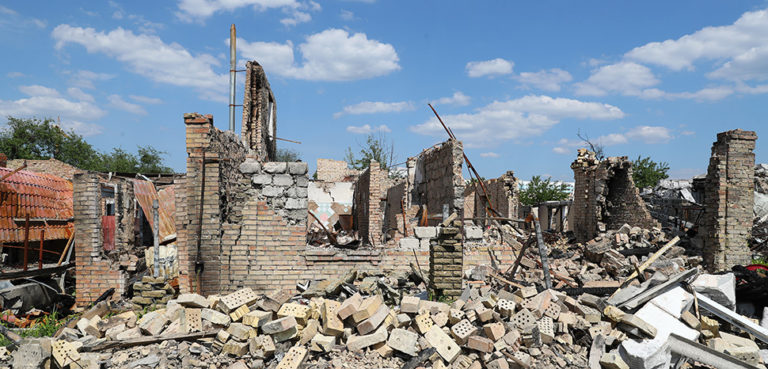The installation of a border crossing point on the Lachin Corridor should not have come as a surprise. Azerbaijan has been strikingly patient for nearly three years waiting for Armenia to sign a post-war peace treaty.
The Lachin road has been de facto sealed from military traffic since environmental protestors established a camp there in December 2022. The protestors continued to allow Russia’s so-called ‘peacekeeping force’ and the IRC (International Red Cross) to travel through the Lachin.
Meanwhile, Armenia has refused to implement articles 3 and 9 of the November 2020 ceasefire agreement.
Article 3 specifies ‘The peacekeeping contingent of the Russian Federation is being deployed in parallel with the withdrawal of the Armenian armed forces.’ Nevertheless, Yerevan still has a large 10,000 contingent (for only 25,000 Karabakh Armenians) of Armenian security forces masquerading as Karabakh ‘self-defence’ forces. In the last three years, Armenia has rotated and re-supplied Armenian and Karabakh forces through the Lachin Corridor with the assistance of Russia’s so-called ‘peacekeeping forces’ using trucks officially transporting humanitarian assistance.
The Russian independent newspaper Novaya Gazeta reported that trucks transporting humanitarian assistance were allowed to travel through the Lachin Corridor after paying ‘several thousand dollars’ in bribes to Russians. Armenian security forces are reportedly travelling in these humanitarian trucks camouflaged as civilians and construction workers. Russia used the same maskirovka when using humanitarian trucks to supply its proxy forces in the so-called ‘Donetsk Peoples Republic’ (DNR) and ‘Luhansk People’s Republics’ (LNR).
In July 2022, Armenian Prime Minister Nikol Pashinyan agreed to withdraw ‘all remaining military units’ from Karabakh by September of that year, itself a recognition that Armenian security forces continued to be illegally based in Karabakh. Unfortunately, Pashinyan has the ‘ability to contradict himself sometimes even in the same sentence’ and he has not fulfilled his promise to withdraw Armenian forces from Karabakh.
Worse still, Armenia has transported into and planted thousands of mines in the Karabakh region that were manufactured in 2021; that is, after the ceasefire agreement was signed. Armenia does not deny the mines were manufactured in 2021 but claims the mines were taken from its own territory.
Article 9 ‘guarantees the safety of transport links between the western regions of the Republic of Azerbaijan and the Nakhichevan Autonomous Republic in order to organize the unimpeded movement of citizens, vehicles and goods in both directions.’ Armenia has refused to call this a corridor (despite using this term for Lachin) and has not implemented article 9 allowing unimpeded traffic along the Zangezur Corridor between Azerbaijan and Nakichevan. Armenia’s borders are controlled by Russia’s FSB (Federal Security Service) and Pashinyan may be reluctant to allow them to control the Zangezur Corridor.
Pashinyan has dragged out the peace talks with contradictory signals and messages. At times Pashinyan has leaned towards an EU-brokered agreement and at other times he has sided with Russia’s proposal to take the ‘Karabakh question’ off the table until an unspecified future date. Azerbaijan does not support an indefinite postponement of the ‘Karabakh question.’
The Kremlin seeks to postpone an agreement on Karabakh which would mean that Russia’s so-called ‘peacekeepers’ would remain indefinitely in place. In the last three decades the Kremlin has never sought to resolve frozen conflicts in Moldova’s Transdniestria, Georgia’s South Ossetia and Abkhazia and Azerbaijan’s Karabakh. The Kremlin has always viewed its so-called ‘peacekeepers’ as military bases projecting Russian influence into its self-declared exclusive sphere of influence in Eurasia.
Pashinyan has only himself to blame for wasting three years and not signing a peace treaty. He came to power in the 2018 velvet revolution as the first leader to be born in Armenia. His main rivals from the ‘Karabakh clan’, Robert Kocharyan and Serzh Sargsyan, were discredited by decades of authoritarianism, rigged elections, oligarchs, and corruption.
But instead of adopting a dovish stance towards Azerbaijan, Pashinyan adopted nationalist rhetoric and called ‘Artsakh’ (Karabakh) an Armenian land, claimed Karabakh should be part of Armenia, and rejected earlier peace proposals. Ironically, although Pashinyan had come to power in a democratic revolution and was not a member of the ‘Karabakh clan’, Pashinyan’s hyper nationalist discourse led to the Second Karabakh War in September 2020 and military defeat.
Since the war, Pashinyan has not reigned in his foreign and defence ministries who continue to espouse irredentism towards Azerbaijan. Armenia’s siloviki refuse to acknowledge their defeat in the 2020 war, claim the ceasefire treaty was imposed upon them, do not accept the conflict is resolved and the only question left remaining is minority rights for Armenians in Karabakh, refuse to accept Azerbaijani sovereignty over Karabakh and continue to promote the concept of ‘self-determination’ for Karabakh.
In international law the concept of ‘self-determination applies to states, not territories within states. Four UN resolutions in April (822), July (853), October (874), and November (884) 1993 supported Azerbaijan’s territorial integrity to include Karabakh. Armenia’s leaders point to Crimea, illegally annexed by Russia in 2014, as the precedent for ‘self-determination’ they wish to use for Karabakh.
Time is running out for Pashinyan.
In November 2025, Azerbaijan is unlikely to renew the five-year mandate for Russian so-called ‘peacekeepers’ as they have not implemented the ceasefire agreement and have directly or indirectly assisted Armenia in maintaining an illegal military presence in Karabakh. Armenia’s reliance on Russian military support is a strategic miscalculation as the war in Ukraine has shown to what degree Russia is a declining power with a Potemkin military.
Pashinyan therefore has just over two years to negotiate a peace treaty with Azerbaijan. If he does not, he will only have himself to blame when Azerbaijan again, as with the new border post it installed this month on the Lachin road, asserts its sovereignty over Armenian-controlled Karabakh.
The views expressed in this article belong to the authors alone and do not necessarily reflect those of Geopoliticalmonitor.com.




